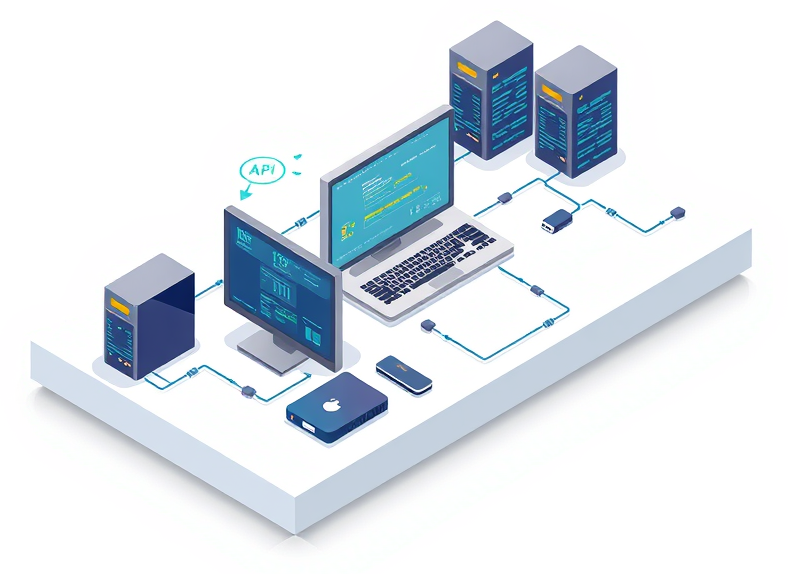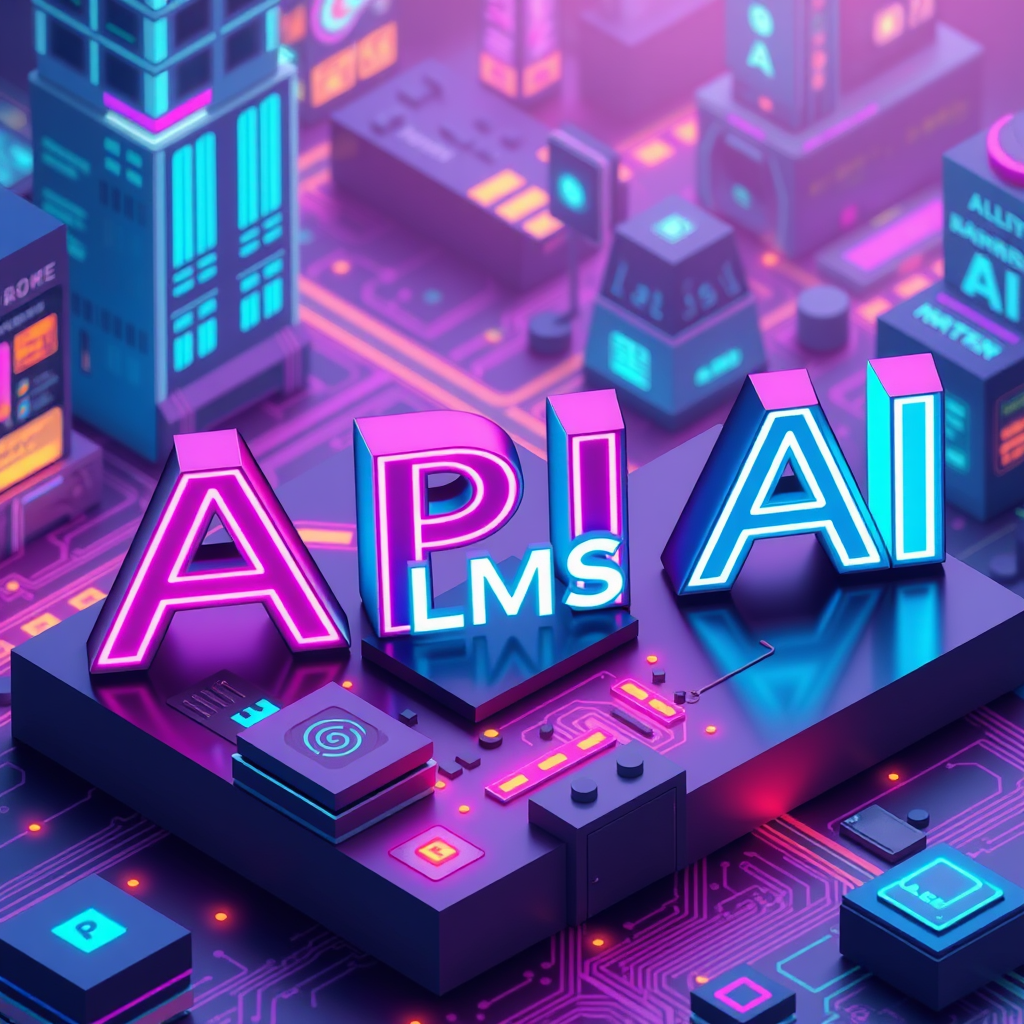The implementation of API integrations is fast becoming a necessity for businesses to keep pace with changes. As the digital landscape rapidly evolves, staying ahead of the curve is key. Businesses across many industries are adopting the use of API integrations to bolster usage of applications, software systems, HR platforms and extensive content libraries. Satisfying the needs and demands of employees, consumers and stakeholders is a balancing act that businesses must constantly juggle, and this requires forward planning and innovative solutions.
Industries including such as financial services, public sector, pharmaceutical, retail and healthcare have all embraced API integrations to automate data transfers and enhance operational efficiencies. In this blog article, we’ll explore why API integrations are helping to elevate the functionality of an LMS and are integral in building a successful learning experience for employees across organisations.
API Integration – What Does It Mean and Why Is It Important For an LMS?
In the context of a Learning Management System, it’s important to understand that an API integration is a connection between multiple datasets and tools.
API stands for ‘Application Programming Interface’, However, there is a defined role that both APIs and integrations have, intertwining with each other to ensure you can connect a network of different learning tools and solutions into your LMS seamlessly.

The Functionality of APIs
Think of the concept of an API as a rulebook of protocols and tools which enables software applications to communicate smartly together for data retrieval, authentication and enhanced connectivity. The API is the code contained within an application server, so that applications can interact and receive or transmit data from one another.
This enables consistency for accessible data streams to provide accuracy for your LMS. Businesses can ensure their LMS does not operate in isolation but becomes a central hub for learning and development to maximise employee development.
Why API Integrations Hold The Key To LMS Success
We believe an LMS should be. Industries are forever evolving with the needs and requirements of the latest technologies. If you allow your LMS to become dated and, you’ll be losing ground on competitors who are making those transitions and moving towards an adaptable LMS model.
APIs in the eLearning space can expand and elevate existing functionalities, opening new opportunities for your organisation. Increased connectivity between vital tools and applications streamlines operations so you can enhance the abilities of your LMS.

API Integration Benefits
Ensuring your business remains sustainable for continuous growth is an obvious priority for directors and business owners. Of course, evolving your L&D strategy isn’t confined to one specific area, it should incorporate many strands to ensure your business is futureproofed for success. Utilising the advantages of APIs for your LMS can pave the way for a faster route to scaling your business.
Developers and learners can reap the rewards of the wide variation in API integrations that enhance the capabilities of your LMS. Let’s look at some of the possibilities that API integrations can bring and to optimise LMS performance.
Automate Tasks and Save Time
Integrate your LMS with a HCM such as Workday or SuccessFactors. Automate user onboarding, get visibility on real-time HR data, centralised management of all your courses and add employee information directly to your LMS.
SSO Functionality
Rather than your employees spending time inputting login details and being asked to reset passwords, SSO functionality offers a seamless login experience for users. Single Sign-On functionality is readily available through APIs. Provide fast-track access for employees across multiple applications with one centralised control panel.
Real-Time Exchange Data
Use analytics tools instead of clunky manual processes for transferring employee data. Get real-time updates with data that enables you to drill down into the data and understand how effective your learning programs are based on metrics like user engagement and performance. Understanding the needs of your team will help you identify areas you can finetune so that your teams achieve their learning objectives faster.
Seamless Communication
Utilise LMS APIs for a simple approach to integrations without overhauling your LMS. You can integrate all your everyday tools like Microsoft Teams, Outlook, Slack and Zoom with Learning Cloud enabling smooth connectivity to enhance collaborative working between your teams through a connected learning experience.
Accessibility for Global Audiences
Ensure your content is accessible in multiple languages by harnessing the power of APIs. With support for multi-lingual content, you can ensure an aligned learning journey for your global teams.
Centralised Training
Combine your CRM with your LMS to provide a centralised training approach that ensures your marketing, customer success and sales teams are synchronised. Integrating CRM tools with your LMS gives you effective tracking to highlight opportunities where revenue can be generated or increased with sales-specific data.
Scale Up with eCommerce
If you have online training courses or programs you can sell online, integrate with eCommerce platforms like Shopify to scale up quickly by diversifying to satisfy the demands of consumers.

Enhance Your LMS with APIs from Netex Learning
So, now we’ve covered LMS APIs, it’s time to outline how Netex can help your business connect tools and appplications into your LMS. Our Learning Cloud LMS is an eLearning ecosystem with integrations available for a wide range of applications and tools. Plug in apps and tools for HR, CRMs, data integrations, content libraries, eCommerce, SSO, and eLearning standards such as xAPI and SCORM.
You can also use our authoring tool to create and tailor bespoke content programs easily for your employees. We also have a dedicated platform for social learning where you can build an extensive resource library of accessible information to support learning and development. In addition to this, we also offer bespoke content, building tailored training programs through our content studio solution.
To find out how you can optimise your LMS with API integrations, contact us today to discuss your options further or to book a demo to see our full range of learning solutions in action.